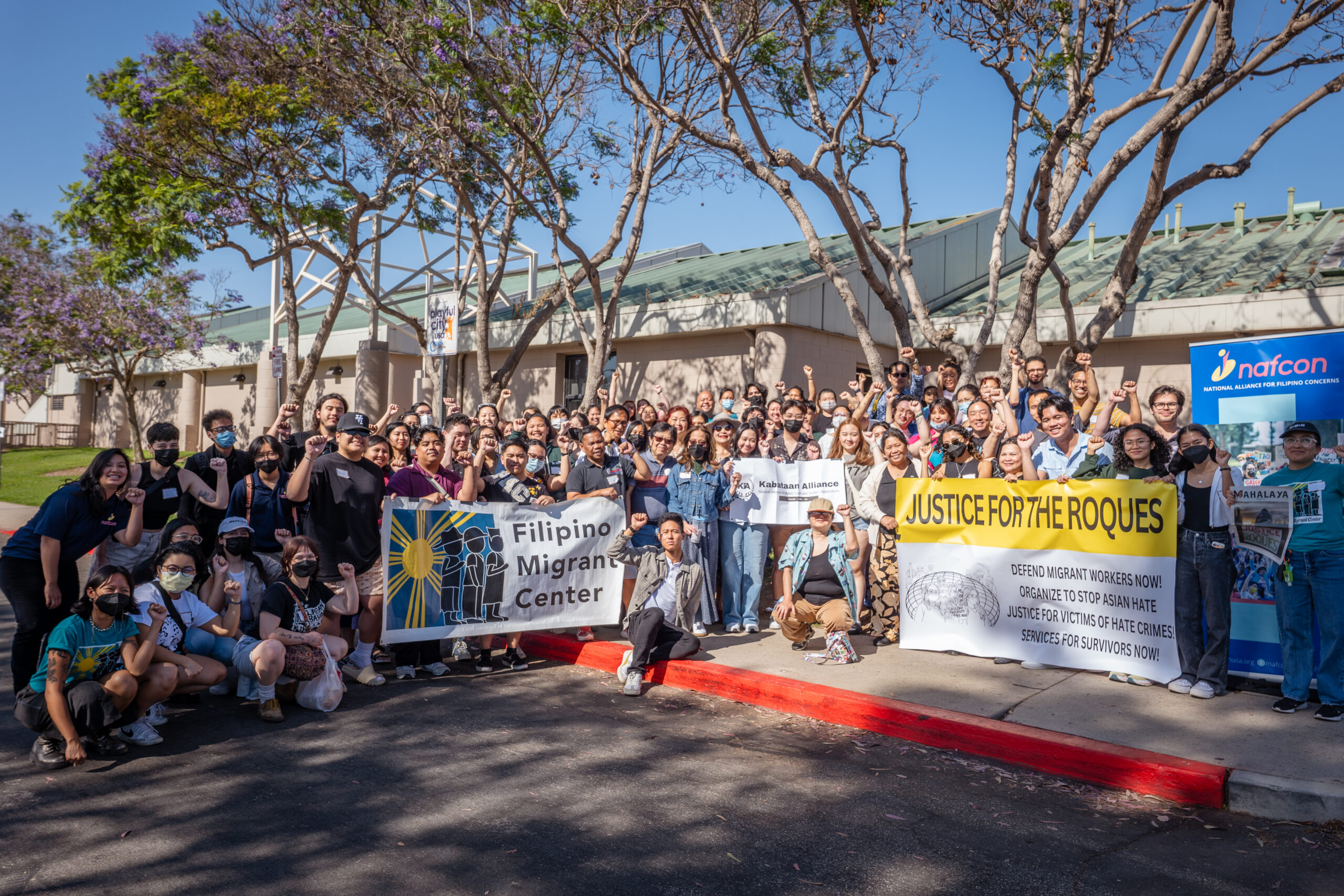By Jun Nucum
A collaborative response by the community against the recent incidents of anti-Asian
hate crimes against Filipino Americans was held in Veterans Park in Carson.
The forum drew more than a hundred community members from organizations and local
elected officials that made up the #StopAsianHate forum in Southern California over the
weekend.
Dubbed as the #StopAsianHate Symposium, the event provided a chance for survivors
of anti-Asian hate crime Nerissa Roque, Gabriel Roque, Nicanor Arriola, Julienne
Ochengco to share their personal accounts of what happened to them and the
aftermath.
They also shared their frustrations with several governmental agencies for unfair
treatment or lack of support and their gratitude for the overwhelming support that they
have received from the community.
They were joined in the forum by representatives of Kabataan Alliance, the National
Alliance for Filipino Concerns (NAFCON), and Migrante Los Angeles and supporters
who were there and kept the survivors going since the start of their struggle for justice.
Attacked in a drive-thru in the San Fernando Valley over a year ago, the Roque Family
continues to seek justice with widespread community support while Nicanor Arriola, a
photojournalist who was covering the Roque case, and his wife Julienne Ochengo were
also brutally attacked in Sacramento in February.
Gabriel Roque, 63, survivor of anti-Asian hate attack at a drive thru of a popular burger
store in Hollywood and father of the Roque family, shared his dismay with the court’s
decision to drop the hate crime charge.
“I went there hoping that the court would shed more light to what happened to us, and
more or less, support our allegations that what happened was true,” revealed Gabriel.
“The lawyers said that my injuries were not caused by (suspect Nicholas) Webber but
instead of getting the truth out, the truth was twisted; therefore, justice was not served.”
For her part, Gabriel’s wife Nerissa turned her frustrations on the California Victim
Services and Philippine consulate.
“It has been a year since we have been asking for help, and we still have not gotten it,”
said Nerissa.
President of the Asian American Press Club Nicanor Arriola described his and his wife
Julienne’s experience during their recovery following the attack.
“It was hard to stand up from the bed, with six broken ribs, and lots of abrasions and
bruises. It was hard for me; especially for Julienne, who had difficulty walking around
the house due to her injuries,” Arriola imparted. “Julienne would often cry out of fear,
worried that our assailants would find our home and attack us once again.”
Lack of support and resources for victims and the daunting task of navigating
complicated systems to receive help on their own has been common complaints for the
survivors..
Somehow, grassroots community efforts from across California stepped in to provide the
needed support for the Roques and the Arriola-Ochengo families.
Migrante Los Angeles’s Cathy Miraballes said, “we have Kababayans (fellow Filipino
Americans) that work double and triple jobs, sacrificing themselves, and leaving their
children and parents behind because of the lack of opportunity to find a job and earn a
decent living.”
“Health and education are some of the basic services that our government should
provide to everybody. But now it has become a privilege only to those who can afford it,”
said Mirabelles.
Rozlind Silva, a regional coordinator of the national Filipino youth organization
Kabataan Alliance, urged young people to act. “We see how little support there is from
people who are supposed to be helping us – people who we elect, people who are
supposed to be providing a safe space for Filipino migrants. They have shown up very
little or have gaps in the way they have shown support for the families. It’s really us as
the Filipino youth. We need to step in, we need to protect our own.”
Karen Roxas, Vice President of NAFCON, urged support for a “Justice and
Accountability Campaign” that she says aims to “go beyond the crime statistics and
individual stories through comprehensive systematic reform, including speedy response
to send aid to victims, reallocation of funds towards community-based approaches
rather than law enforcement, and effective rehabilitation and education for those who
have caused harm to the victims.”
In partnership with the Filipino Migrant Center, NAFCON launched an emergency
services fund for low-income migrant Filipinos in Southern California.
#
Caption:
Participants of the Stop Asian Hate symposium gather at Veterans Park in Carson for a photo after the
event (Photo courtesy of Siklab Media)






























